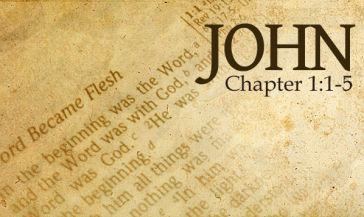“In the beginning was the Word, and the Word was with God, and the Word was God.”
(John 1:1)
Though God in His infinite glory is beyond the grasp of our human senses, He graciously reveals Himself to us. From the majesty of the heavens to the pages of Scripture, and supremely in the person of His Son, God has spoken. And by His Word, He has drawn near.
Creation bears witness to His glory. The stars proclaim His greatness, the earth His wisdom, and every blade of grass testifies to His care. “The heavens declare the glory of God” (Psalm 19:1). This general revelation is an invitation to awe and worship—a summons to see the invisible through the visible. “Every common witness of God in the works of creation ‘fills the heart with gladness,’ Acts 14:16, 17, much more every spiritual witness of God in the work of redemption apprehended by the soul.”[1]
But in His mercy, God has done more. Through the Law and the Prophets, by His Spirit inspiring men of old, He gave His Word in written form. This special revelation unveils His will, His holiness, His promises, and His way of salvation. It is a treasure to be read, believed, and obeyed.
Yet even this was not the end of His revelation of Himself to mankind. In the fullness of time, the Word became flesh. Jesus Christ, the eternal Son, stepped into creation. He is the living Word, the full expression of God—grace and truth embodied. In Christ, the distance between God and man was closed. The One who spoke galaxies into existence now speaks peace to sinners. The Word who was with God, and who was God, became a man to redeem man back to God.
To read Scripture is to hear His voice. To behold Christ is to see His glory. Through His Word we come to know God—and not just by gaining knowledge about Him but coming to know Him relationally through salvation. And as a child with his father, in coming to know God as Father, we find life, joy, and the power to become His children (John 1:12).
Contemplations:
- I Thank You for Revealing Yourself. You have not left me to wonder who You are, Lord. For in nature, in Scripture, and in Christ You have spoken. Thank You, Lord, for condescending to make Yourself known to one as small and sinful as I am.
- I Thank You for the Living Word. Christ is not only the messenger—He is the message. He is the perfect revelation of Your heart. Thank You for sending Him not only to teach me truth but to save me by His own blood.
- I Thank You for the Written Word. Your Scriptures are a lamp to my feet and a light to my path. They rebuke, correct, train, and comfort. I am never left without guidance because of the light You have given me in the pages of Your Word.
- I Thank You for the Ongoing Work of Your Spirit. As I read, it is Your Spirit who opens my eyes. As I listen, it is Your Spirit who softens my heart. Thank You for not only giving me Your Word but making it alive in me.
Prayer
[Thanksgiving for the Gift of the Word]
Glorious Father, How shall I thank You for the gift of Your Word? You, who are infinite in glory, have stooped to speak that I might hear. You have written that I might read. You have entered flesh that I might behold Your glory. Lord, what is man, that You are mindful of him?
Thank You for revealing Yourself so clearly. When I look at creation, I see Your power, Your order, Your majesty. The sun that rises each morning testifies to Your faithfulness. The stars above whisper of Your wisdom. And every leaf that falls reminds me of Your sovereign rule. All the earth is filled with the knowledge of You.
Yet in my blindness, I would never have known Your salvation apart from Your Word. Thank You, Father, for the written Scriptures. Thank You for the truth passed down through prophets and apostles, preserved by Your hand. Thank You that I have access to Your Word—not hidden in darkness but shining forth with the light of Christ.
And most of all, I thank You for the Living Word, Jesus Christ. That He would humble Himself to be born of a woman, to live under the law, to suffer and die, all that I might be reconciled to You. This is mercy beyond measure! He is the perfect expression of Your glory, the exact imprint of Your nature. Through Him, I see You. Through Him, I come to You.
Lord, what gratitude can match such grace? You have not left me in silence. You have not hidden Yourself. Through Christ, You opened the way. By Your Spirit, You opened my eyes. Thank You for the power of Your Word to convict, to comfort, to sanctify, and to save. I am grateful, Lord, that Your Word is living and active, sharper than any two-edged sword, and able to reach the deepest parts of me.
Let me never take this gift for granted. Let me treasure Your Word more than gold and meditate on it day and night. Let my heart burn within me when I hear it, as the disciples did on the road to Emmaus. And let Your Word dwell in me richly, shaping every thought and action, so that Christ may be seen and glorified in me.
For all this and more, I give You thanks. Through Jesus Christ, the Word made flesh, I lift this prayer. Amen.
Further References for John 1:1
John 5:18, 20:28; Deuteronomy 32:39; Isaiah 43:10; Acts 12:22, 20:28; Ephesians 5:5.
[1] Stephen Charnock, The Complete Works of Stephen Charnock, vol. 4 (Edinburgh; London; Dublin: James Nichol; James Nisbet and Co.; W. Robertson; G. Herbert, 1864–1866), 49.


